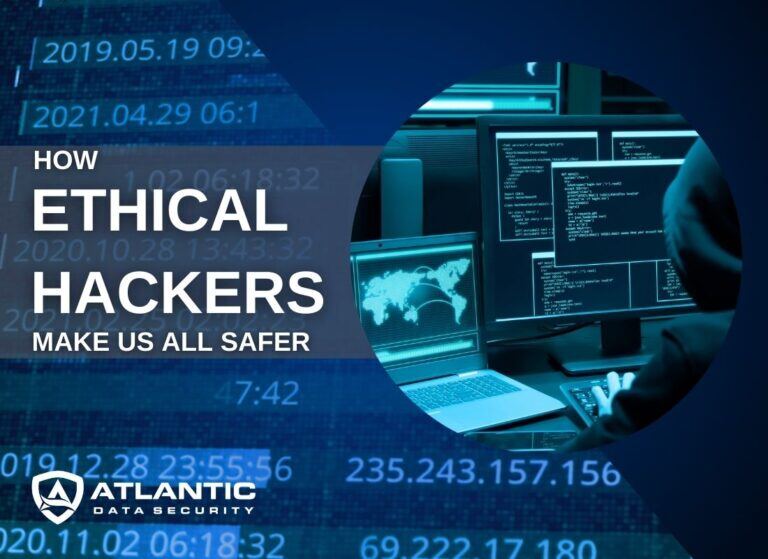The term "hacker" often conjures images of shadowy figures breaching systems for malicious reasons. Despite its origins as a celebratory term for creative engineering and problem solving, the word has long been associated with illegal activities, fostering a perception of hackers as digital villains. However, the word is gradually being rehabilitated as practices like penetration testing and bug bounties become increasingly established as legitimate and important cybersecurity practices. Today, ethical hackers, also known as "white hat" hackers, are recognized as invaluable allies in the fight against cybercrime.
Ethical hacking involves legally utilizing hacking skills to identify and rectify vulnerabilities in systems before malicious hackers can exploit them. These professionals operate under strict authorization, ensuring their activities are within legal boundaries. By simulating real-world cyberattacks, ethical hackers help organizations understand their security posture and implement robust defenses.
The Crucial Role of Ethical Hackers in Modern Cybersecurity
In the current digital landscape, the role of ethical hackers is indispensable. With cyber threats becoming increasingly sophisticated, organizations cannot afford to rely solely on reactive measures. Ethical hackers provide a proactive approach by identifying vulnerabilities and potential attack vectors before they can be exploited.
These professionals help organizations answer critical cybersecurity questions, such as; which vulnerabilities could be exploited, which systems or data are most at risk, and what damage could be caused by a breach? By performing penetration tests and [vulnerability assessments], ethical hackers uncover weaknesses in software, hardware, and human elements, enabling organizations to fortify their defenses and protect sensitive data.
Professional Penetration Testing: Building Resilient Security Systems
Penetration testing, or pen testing, is a cornerstone of ethical hacking and one if it’s most well-established practices. Organizations employ pen testers to simulate cyberattacks under controlled conditions, uncovering weaknesses in their security systems. This process involves attempting to breach application systems, network infrastructures, and even employing social engineering tactics.
Regulations or cyber-insurance policies often require pen tests to validate and stress-test security measures. These tests provide organizations with a comprehensive, practical, understanding of their vulnerabilities and help build more resilient security protocols. By identifying and rectifying security gaps, pen testers play a crucial role in safeguarding sensitive data and maintaining business continuity.
The Evolution and Significance of Bug Bounty Programs
Apart from the structured, formalized practice of pen-tests, Bug bounties have developed a way to harness the creativity and free-spiritedness of the hacker community by rewarding the discovery and reporting of vulnerabilities. By harnessing the collective expertise of the global hacking community, organizations can identify and mitigate vulnerabilities before they are exploited.
Platforms like Bugcrowd have become popular avenues for bug bounty hunting. These platforms offer structured programs where ethical hackers can submit vulnerability reports and earn rewards. Public programs, often run by large companies, provide extensive scope and substantial payouts. Private programs, accessible by invitation, offer exclusive opportunities with higher rewards.
Bug bounty programs benefit both organizations and ethical hackers. Organizations gain insights into their security posture and can address vulnerabilities proactively. Ethical hackers, on the other hand, can earn significant rewards while contributing to a safer digital environment.
Navigating Ethical Challenges and Legal Boundaries
While ethical hacking is invaluable, it also navigates a complex landscape of ethical and legal challenges. Ethical hackers must operate within strict legal parameters to ensure their activities do not overstep into illegal hacking. They face dilemmas in responsibly disclosing vulnerabilities without enabling misuse and must maintain confidentiality while handling sensitive information.
Freelance ethical hackers, particularly those in bug bounty programs, often face inconsistent income and the need to continually update their skills in a rapidly evolving field. Clear ethical guidelines and legal frameworks are essential to ensure that ethical hacking is conducted responsibly and effectively.
The Future of Ethical Hacking:
Like many aspects of cybersecurity, ethical hacking practices and standards are continually evolving and improving. Emerging technologies such as artificial intelligence (AI) and machine learning are set to create new attack surfaces and techniques that threat actors will seek to exploit, and as new ways to identify and resolve vulnerabilities that security teams will try to leverage.
As cyber threats become increasingly complex, there is a growing demand for skilled and experienced ethical hackers.
Conclusion
Cyber threats aren’t slowing down—and neither should your defenses. Ethical hacking has moved from a niche tactic to a frontline strategy for protecting digital assets. It’s not just about patching holes; it’s about thinking like an attacker, staying one step ahead, and building systems that can take a hit and keep going.
Organizations that embrace ethical hacking aren’t just reacting to breaches—they’re preventing them. They cultivate a culture of security, resilience, and trust from the inside out.
Atlantic Data Security can help you lead that charge. Whether you need professional penetration testing, guidance on setting up a bug bounty program, or strategic insights to future-proof your security posture, our experts are here to help.
Talk to an ADS advisor today to turn proactive defense into your strongest advantage.

